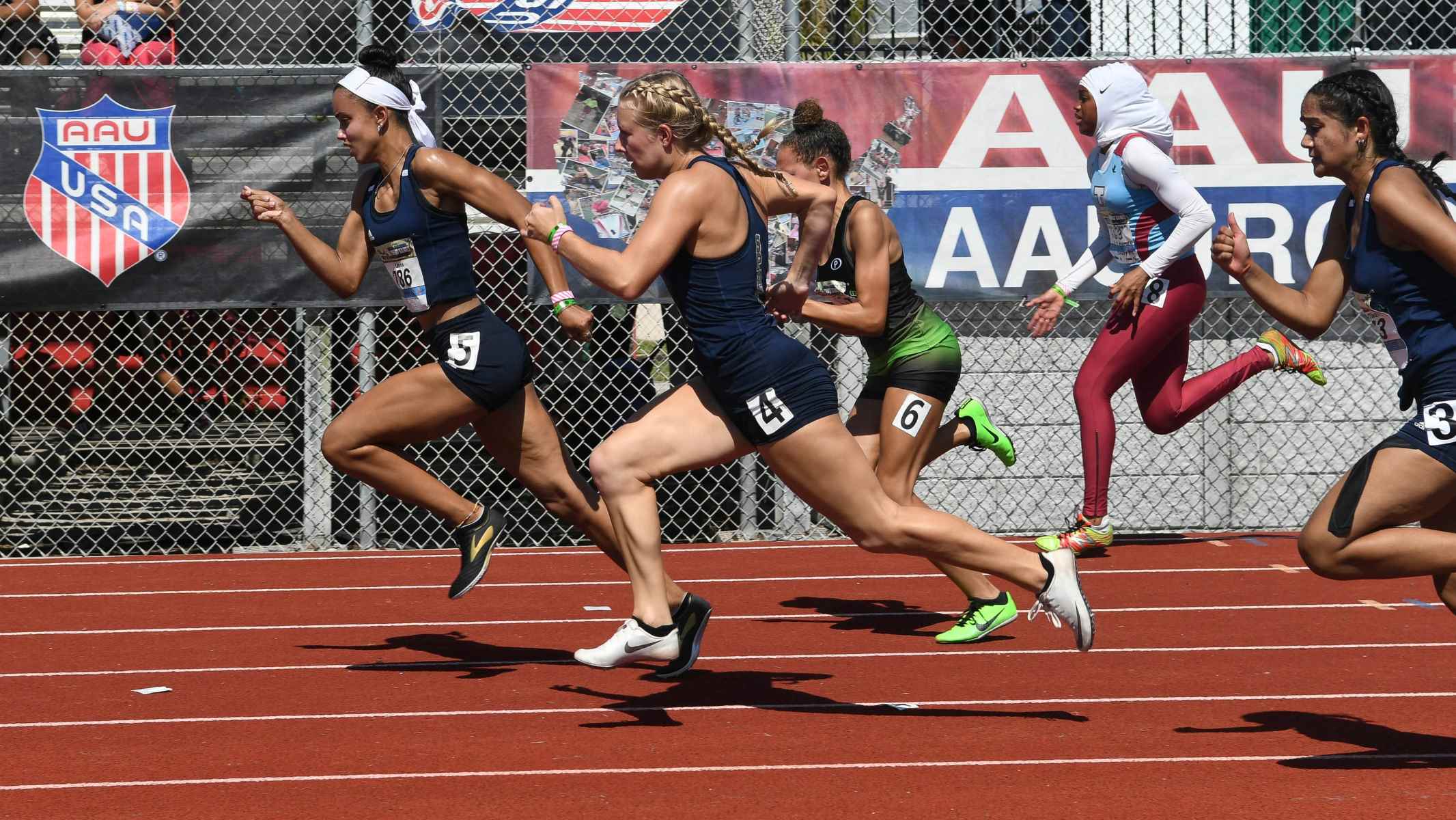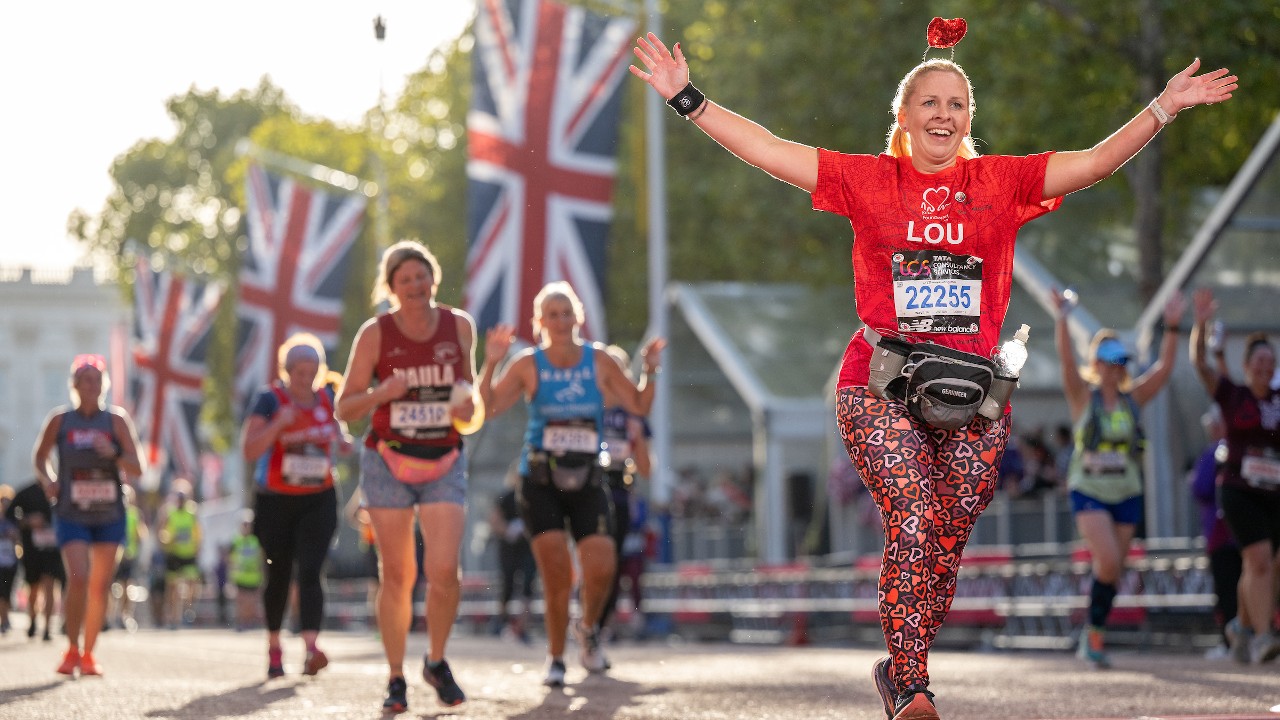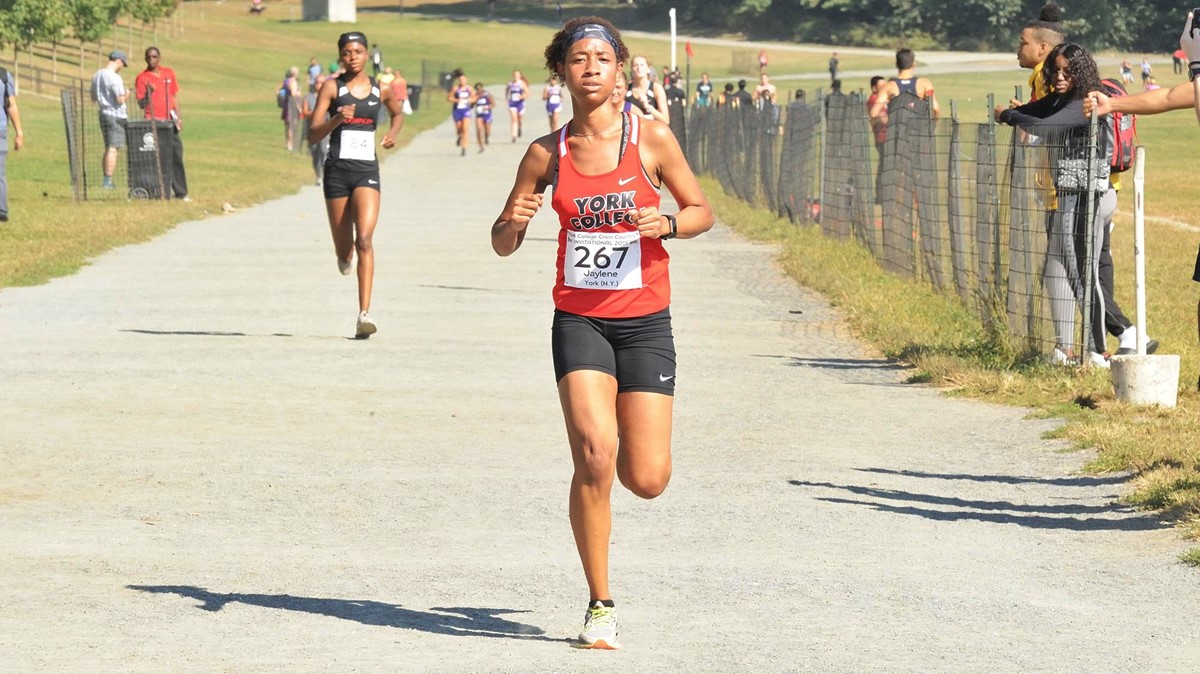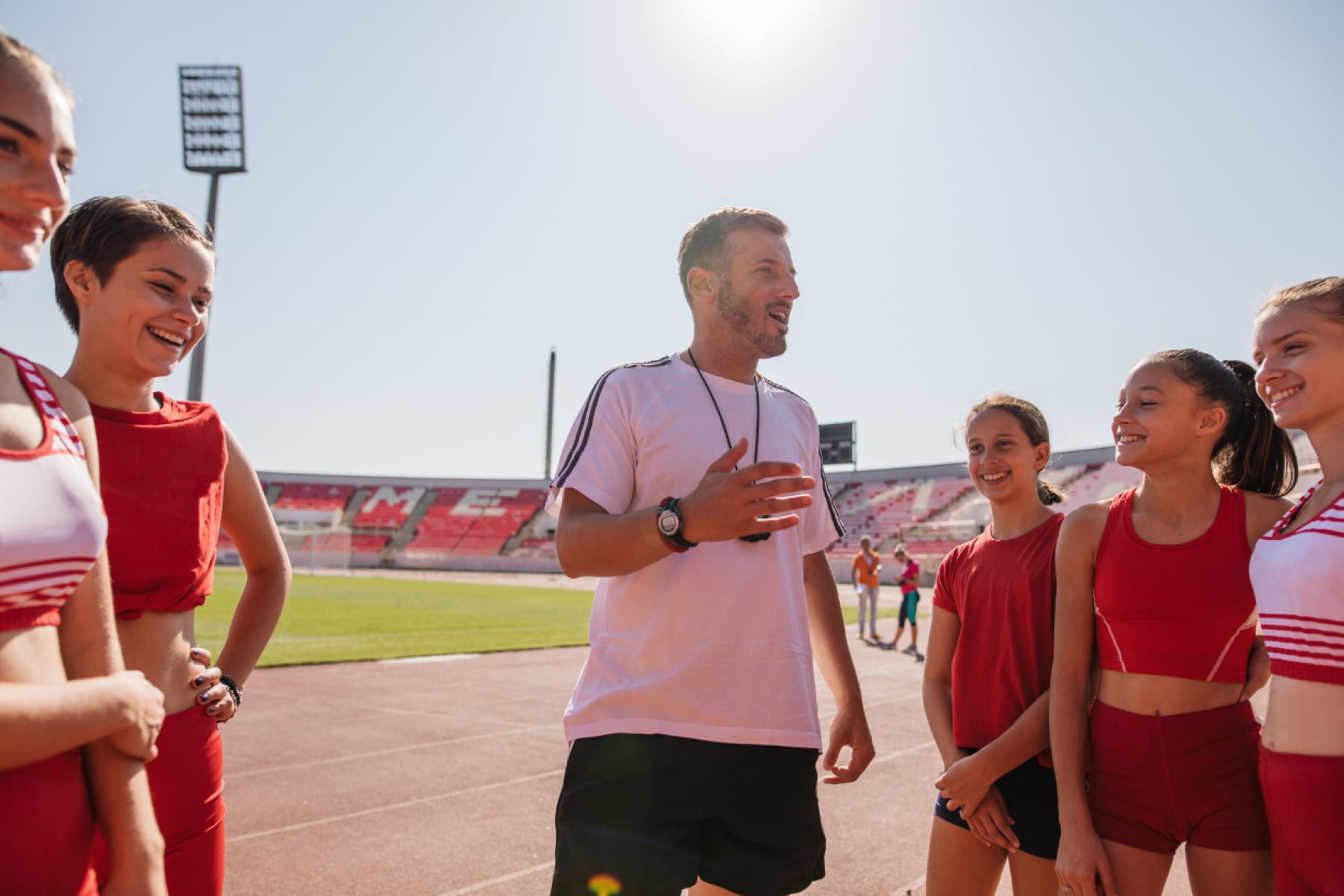Home>Misc>Featured>What Questions To Ask When Hiring A Running Coach


Featured
What Questions To Ask When Hiring A Running Coach
Modified: May 22, 2024
Looking to hire a running coach? Get valuable insights and find the perfect fit for your training needs with our featured expert coaches. Ask the right questions for a successful coaching relationship.
Introduction
Hiring a running coach can be a game-changer in your running journey. Whether you are a beginner looking to improve your running technique or an experienced runner aiming for a specific goal, a professional coach can provide the guidance, support, and expertise you need to reach your full potential.
However, finding the right running coach is not a decision to be taken lightly. With the abundance of coaches available, it’s crucial to ask the right questions to ensure that you choose someone who is the perfect fit for your goals and needs. This comprehensive guide will walk you through the essential questions to ask when hiring a running coach.
Your running goals and aspirations are unique to you. Before reaching out to potential coaches, take some time to reflect on what you hope to achieve. Are you training for a marathon? Do you want to improve your speed or endurance? Are you recovering from an injury? Having a clear understanding of your goals will help you find a coach who specializes in the areas that align with your objectives.
When evaluating a coach’s experience and credentials, inquire about their background in running and coaching. Ask how long they have been coaching professionally and what levels of runners they have worked with. Look for coaches who have relevant certifications and training in exercise science or physiology. Additionally, consider whether they have personal experience in the type of running you want to focus on, such as long-distance running or trail running.
Understanding a coach’s training philosophy is crucial to ensure it aligns with your own beliefs and preferences. Ask about their approach to training, including their views on mileage, cross-training, speed work, and recovery. Some coaches follow a more structured and traditional training methodology, while others may incorporate more holistic and individualized approaches. Find a coach whose philosophy resonates with you and fits your training style.
Communication and availability are key factors in establishing a successful coach-athlete relationship. Ask how frequently and through what means the coach will communicate with you. Will there be regular check-ins, feedback on your progress, and adjustments to your training plan? Clarify whether the coach will be available for questions and concerns outside of formal training sessions. Open and effective communication is essential for addressing any challenges or modifications that may arise during your training.
Asking about the coach’s training plans and schedule is important to gauge the level of customization and flexibility you can expect. Inquire about the structure of the training program, the incorporation of rest days, and the ability to adapt the plan based on your progress and any unforeseen circumstances. Consider whether the coach can accommodate any specific scheduling needs or constraints you may have.
Discussing fees and payment options upfront is essential to ensure there are no financial surprises down the line. Inquire about the coach’s pricing structure, whether it’s a monthly retainer, per-session fee, or a package deal. Make sure you understand what services are included in the fee, such as personalized training plans, race day support, or additional resources. It’s also important to clarify any cancellation or refund policies.
A successful coach-athlete relationship requires a clear understanding of expectations and commitment on both sides. Discuss your expectations with the coach, including the level of intensity, discipline, and feedback you desire. In return, the coach should outline their expectations of you, such as consistency in training, adherence to the training plan, and communication. Being transparent about expectations will help establish a strong foundation for your coaching partnership.
Seeking references and testimonials can provide valuable insights into a coach’s track record and client satisfaction. Don’t hesitate to ask for testimonials from previous or current athletes who have worked with the coach. Hearing about their experiences and results can help you determine if the coach aligns with your goals and has a history of delivering successful outcomes.
Lastly, coach-athlete compatibility plays a significant role in the effectiveness of the coaching relationship. While expertise and experience are important, it’s equally crucial that you feel comfortable and connected with your coach. Trust your instincts and evaluate whether the coach’s personality, communication style, and motivational strategies resonate with you.
By asking the right questions and evaluating these essential factors, you can confidently choose a running coach who will guide and support you on your running journey. Remember, finding the right coach is the first step toward achieving your running goals and maximizing your potential.
Determining Your Running Goals
Before hiring a running coach, it’s essential to determine your specific running goals and aspirations. Understanding what you hope to achieve will help you find a coach who specializes in the areas that align with your objectives.
Take some time to reflect on your running journey and consider what you want to accomplish. Are you looking to run your first marathon? Do you want to improve your speed and race times? Are you aiming to complete a trail ultramarathon? Identifying your running goals will provide direction and clarity as you search for a coach.
Once you’ve identified your primary goal, break it down into smaller, more manageable milestones. For example, if your goal is to complete a marathon, you might set milestones of running a 10k race, a half marathon, and a 20-mile training run. These milestones will not only help you track your progress but also give your coach a clear understanding of the stepping stones along your journey.
Consider the timeline for your goals as well. Are you working towards a specific race date, or do you have a more flexible timeline? This will impact the training plan and schedule you will need from your coach. Be realistic about the time you have available for training and any other commitments that may affect your running goals.
It’s also important to consider any challenges or obstacles you may encounter along the way. Do you have a history of injuries or struggle with a particular aspect of running, such as pacing or hill training? Communicating these challenges to your potential coach will help them understand your specific needs and tailor a training plan accordingly.
Remember that running goals can evolve and change over time. As you progress in your running journey, you might discover new aspirations or adjust your previous goals. A good coach will be able to adapt to these changes and help you refocus your training accordingly.
By determining your running goals before hiring a coach, you will have a clear vision of what you want to achieve and be better equipped to find a coach who can guide you towards success.
Evaluating the Coach’s Experience and Credentials
When hiring a running coach, it’s crucial to evaluate their experience and credentials to ensure they have the knowledge and expertise to help you reach your running goals. By asking the right questions and gathering relevant information, you can make an informed decision about the coach who is the best fit for you.
Start by inquiring about the coach’s background in running and coaching. How long have they been coaching professionally? Have they coached runners at the same level or with similar goals as yours? Gathering this information will give you a sense of their experience working with athletes like you.
In addition to their coaching experience, inquire about their own running background. Have they participated in races or events similar to what you aspire to accomplish? Personal experience in your desired type of running, whether it’s road races, trail runs, or ultras, can provide valuable insights and credibility to the coach’s recommendations.
Ask about the coach’s certifications and training in exercise science or physiology. Reputable coaching certifications, such as those from the RRCA (Road Runners Club of America) or USATF (USA Track & Field), indicate that the coach has undergone specific education and training in coaching principles and techniques.
Consider whether the coach has any specialization or expertise in areas that align with your goals. For example, if you’re training for a trail marathon, a coach with experience and knowledge in trail running can offer valuable guidance specific to the demands of off-road terrain and elevation changes.
While experience and qualifications are important, don’t overlook the value of ongoing professional development. Ask the coach about any continuing education they pursue to stay current with the latest research and coaching methods. A coach who invests in their own growth and learning is more likely to provide up-to-date and effective training strategies.
Inquire about the success and achievements of their past clients. While individual results may vary, hearing about the accomplishments of other athletes who have worked with the coach can give you an idea of their track record in helping athletes reach their goals.
Seeking testimonials or references from previous or current clients is another valuable way to assess a coach’s credibility and reputation. Contacting athletes who have worked with the coach can provide firsthand insights into their coaching style, responsiveness, and overall satisfaction.
Remember, the coach’s experience and credentials should align with your specific goals and needs. By evaluating these factors, you can ensure that the coach you hire has the necessary expertise and qualifications to guide you on your running journey.
Understanding the Coach’s Training Philosophy
When hiring a running coach, it’s important to have a clear understanding of their training philosophy. Each coach may have a unique approach to training, and finding one that aligns with your beliefs and preferences is crucial for a successful coaching relationship.
Start by asking the coach about their overall philosophy when it comes to training runners. This will give you an insight into their general approach and principles. Some coaches may focus on a structured and traditional training methodology, while others may emphasize a more holistic and individualized approach.
Inquire about the coach’s views on key training components such as mileage, cross-training, speed work, and recovery. Understanding their stance on these elements will provide clarity on the strategies they may employ in designing your training program. For example, if you prefer a more high-volume training approach, it’s important to find a coach who emphasizes higher mileage. If you value variety and incorporating other activities, clarify how the coach incorporates cross-training into their training plans.
Ask about the coach’s perspective on injury prevention and how they approach training to minimize the risk of injuries. Inquire about their strategies for balancing hard workouts and recovery days to prevent overtraining and maximize your performance. A coach who prioritizes injury prevention and recovery will help you stay healthy and motivated throughout your training.
Discuss their perspective on periodization, which involves dividing your training into different phases or cycles. Understanding how the coach structures training blocks, base building, and tapering periods will give you an idea of how they plan and adapt your training as you progress towards your goals.
Consider the coach’s approach to goal setting. A coach who believes in setting realistic, achievable, and time-specific goals can help provide direction and motivation throughout your training. Discuss how they track progress and measure success to ensure you are on track towards achieving your goals.
Find out how the coach incorporates flexibility and listens to your body. It’s important to have a coach who can adapt the training plan based on your individual needs and feedback. The ability to make adjustments when necessary, due to factors like fatigue, illness, or unexpected life events, is essential for sustainable progress and long-term success.
Additionally, inquire about the coach’s views on mental training and mindset. Running is not just physical; it also requires mental strength and resilience. Discuss how the coach works on developing mental toughness, motivation, and focus for race day and challenging training sessions.
Understanding the coach’s training philosophy is pivotal in determining whether their approach resonates with you. By finding a coach whose philosophy aligns with your values and training preferences, you can establish a solid foundation for a successful coaching partnership.
Assessing Communication and Availability
Effective communication and availability are crucial factors to consider when hiring a running coach. Establishing open and consistent lines of communication ensures that you receive the guidance and support you need throughout your training. Here are some important questions to ask when assessing a coach’s communication style and availability:
Ask the coach how they prefer to communicate with their athletes. Do they schedule regular check-ins? Are they available for phone calls, emails, or video calls? Clarify the frequency and mode of communication that you can expect. Knowing how and when you will communicate will help you stay connected and receive timely feedback and updates from your coach.
Inquire about the coach’s response time to queries or concerns. Will they be available to answer your questions within a certain timeframe? Establishing expectations regarding response times will prevent any potential miscommunication or frustration during your training.
Ask how the coach handles adjustments and modifications to the training plan. Life can be unpredictable, and unexpected circumstances may require changes to your running schedule. Find out how flexible the coach is in accommodating adjustments due to variables like illness, injury, work commitments, or personal events.
Discuss how the coach provides feedback on your training progress. Will they review your training data, such as race times, pace, or heart rate metrics? How do they evaluate your progress in relation to your goals? Regular feedback and analysis of your performance are essential for making necessary adjustments to your training plan.
Consider the coach’s approach to tracking and monitoring your training. Do they use any specific software or apps to track your workouts? Will they provide you with a clear overview of your training plan, including important milestones and key workouts? Having a well-structured and organized training plan will help you stay motivated and focused on your goals.
Inquire about the coach’s availability for support outside of formal training sessions. Will they be accessible for any additional questions or concerns that may arise? Knowing that you have a coach who is there to provide guidance and support beyond scheduled sessions can give you peace of mind throughout your training journey.
Assess the coach’s ability to adapt their communication style to your needs and preferences. Some athletes may prefer more frequent communication, while others may prefer less. Finding a coach who can tailor their communication approach to suit your individual preferences will enhance the coaching relationship.
Clear and consistent communication is key to the success of the coach-athlete partnership. By assessing a coach’s communication style and availability, you can ensure that you will have the support and guidance you need to excel in your running journey.
Inquiring about Training Plans and Schedule
When hiring a running coach, it’s essential to inquire about their training plans and schedule to ensure that they can provide a plan that aligns with your goals, abilities, and lifestyle. Understanding the coach’s approach to training and the structure of their training plans will help you determine if it is a good fit for you. Here are some key questions to ask in this regard:
Ask the coach how they typically structure their training plans. Do they follow a specific training methodology or framework? Inquire about their approach to periodization, which involves dividing the training into different phases or cycles. Understanding how they structure training blocks, base building, and tapering periods will give you an idea of how they plan and adapt your training as you progress towards your goals.
Discuss the coach’s thoughts on volume and frequency of training. Inquire about the expected number of days per week you will be running and the average weekly mileage you can expect. Understanding the coach’s belief around volume will allow you to gauge if their training philosophy aligns with your preferences and ability to handle certain training loads.
Find out how the coach incorporates different types of workouts into their training plans. Ask about the emphasis on easy runs, long runs, intervals, tempo runs, and recovery runs. Understanding the balance between different types of workouts will give you an idea of the coach’s training priorities and how they structure training to improve your performance.
Inquire about the coach’s approach to cross-training. If you enjoy activities like cycling, swimming, or strength training, discuss how the coach incorporates and supports these activities in your overall training plan. Understanding how cross-training fits into the coach’s approach will help you determine if it aligns with your preferences and overall training goals.
Ask the coach how they adapt the training plan based on your progress and feedback. Inquire about their flexibility to modify workouts or adjust the training schedule as needed. A coach who can make adjustments to the plan based on your individual needs and feedback will help you stay motivated and ensure that your training remains effective.
Consider your availability and discuss with the coach how they can customize the training plan to fit your lifestyle. If you have specific scheduling constraints or other commitments, ask if the coach can accommodate these factors and adjust the training plan accordingly.
Discuss the coach’s perspective on rest and recovery. Inquire about their recommendations for rest days and how they incorporate recovery weeks or periods into the training plan. Understanding their approach to balance training and recovery will help prevent overtraining and ensure that you stay injury-free and motivated throughout your training.
Inquiring about the coach’s training plans and schedule will provide you with a clear understanding of what to expect as you embark on your coaching journey. By finding a coach who can provide a well-structured and flexible training plan that suits your goals and lifestyle, you will set yourself up for success and maximize your potential as a runner.
Discussing Fees and Payment Options
When hiring a running coach, discussing the fees and payment options upfront is an important step to ensure transparency and avoid any financial surprises. Understanding the coach’s pricing structure and available payment options will help you make an informed decision and set the right expectations for your coaching relationship. Here are some key considerations when discussing fees and payment:
Ask the coach about their pricing structure. Do they charge a monthly retainer fee, a per-session fee, or offer package deals? Inquire about what services are included in the fee, such as personalized training plans, consultations, or additional resources. Understanding the breakdown of the cost will help you assess the value you will receive.
Discuss whether there are any additional fees or expenses beyond the coaching fee. For example, some coaches may charge extra for race day support or travel expenses if they are required to attend races or events with you. Clarifying these potential additional costs will help you budget and plan accordingly.
Inquire about the coach’s preferred payment method. Do they accept credit cards, bank transfers, or other forms of online payment? Understanding the available options will help you determine the most convenient and secure way to make payments.
Ask about the coach’s payment terms and schedule. Inquire about whether the payment is due monthly, in advance, or on a different schedule. Clarify any late payment policies or refund policies if applicable.
Discuss any potential discounts or incentives that the coach may offer. Some coaches may have discounted rates for long-term commitments or provide referral bonuses if you recommend their services to others. Inquiring about these possibilities can help you take advantage of any cost-saving opportunities.
Consider whether the coach offers a trial period or initial consultation. This can be an opportunity to experience their coaching style and see if it’s a good fit before committing to a long-term coaching relationship. Ask if there is a fee associated with these trial periods or consultations.
Discuss the coach’s cancellation policy. Life circumstances can change, and it’s important to understand the coach’s policy in case you need to pause or terminate the coaching relationship. Inquire about any notice periods or potential fees associated with cancellations.
It’s important to have a clear understanding of the financial aspect of the coaching relationship. Discussing fees and payment options will help you make an informed decision and ensure that both you and the coach are aligned in terms of expectations and financial commitments.
Clarifying Expectations and Commitment
When hiring a running coach, it’s crucial to have a clear understanding of the expectations and commitment required from both sides. Setting expectations upfront will help establish a strong foundation for your coaching partnership and ensure that you and the coach are aligned in terms of goals, communication, and commitment. Here are some key aspects to clarify:
Discuss your expectations with the coach. Share what you hope to achieve through their coaching, whether it’s improving race times, building endurance, or achieving a specific running goal. Be honest about your aspirations and desires so that the coach can tailor their approach to meet your expectations.
In return, ask the coach about their expectations of you as the athlete. Inquire about the level of dedication, consistency, and discipline they expect from you. Clarify any specific requirements they may have, such as completing assigned workouts, using certain tracking tools, or adhering to training schedules.
Discuss the frequency and type of communication that both parties can expect. Inquire about how often the coach will check in with you and provide feedback on your training. Clarify whether there are designated times for communication or if you can reach out to the coach with questions or concerns as needed.
Address any concerns or limitations you have. If you have scheduling constraints, work commitments, or other personal limitations, discuss these with the coach. The coach may be able to adapt the training plan or suggest alternative solutions. Being transparent about your constraints is essential for establishing realistic expectations.
Consider your level of commitment and the time you can dedicate to training. Think about the availability you have for running, cross-training, and recovery. Be honest about your personal circumstances so that the coach can develop a training plan that fits your lifestyle and maximizes the results you can achieve.
Inquire about the coach’s availability and responsiveness outside of scheduled sessions. Clarify whether the coach will be available to address any additional questions or concerns that may arise during your training. Understanding the coach’s availability for support will reassure you that you have their guidance and expertise when you need it.
Discuss the timeline and duration of the coaching relationship. Determine whether you are seeking short-term coaching for a specific event or if you are looking for a longer-term partnership. Understanding the duration of the commitment will help you plan and set appropriate goals with the coach.
Be honest about any limitations or challenges you foresee. If you have any potential obstacles that may affect your training, such as injuries, medical conditions, or personal circumstances, disclose these to the coach. Open communication about challenges will allow the coach to better support and adapt the training plan as needed.
Clarifying expectations and commitment is fundamental for a successful coaching relationship. By openly discussing goals, communication expectations, availability, and any limitations, both you and the coach can establish a mutual understanding and work towards achieving your running goals together.
Seeking References and Testimonials
When hiring a running coach, seeking references and testimonials from previous or current clients can provide valuable insights into their track record and client satisfaction. Learning about others’ experiences with the coach will help you gauge their expertise, effectiveness, and compatibility. Here are some key steps to take when seeking references and testimonials:
Ask the coach for references from previous or current clients who have worked with them. Hearing directly from athletes who have experienced the coach’s guidance and support can provide valuable firsthand information.
Reach out to the provided references and ask about their experience working with the coach. Inquire about their specific goals, the length of the coaching relationship, and the outcomes they achieved under the coach’s guidance. Ask if they felt supported, motivated, and well-guided throughout the process.
Seek out testimonials from the coach’s website, social media platforms, or other online sources. Many coaches have testimonials from satisfied clients that highlight their strengths and the positive impact they had on their athletes’ lives. Reading these testimonials can give you an overall sense of the coach’s reputation and the results they have achieved with their clients.
Look for reviews or feedback on popular running and coaching forums or websites. Searching for online discussions and comments about the coach can provide additional perspective and insights from a broader range of athletes who have worked with them.
Consider the similarities between the references and testimonials and your own goals and needs. Look for athletes who had goals or challenges similar to yours. This will help you assess how relevant their experiences are to your own journey.
Ask specific questions of the references or testimonials that are relevant to your concerns. For example, if you are interested in a coach’s ability to guide athletes through injury recovery, ask references about their experiences in this specific area. Tailoring your questions to your own priorities will provide you with the most relevant and helpful information.
Remember that references and testimonials provide subjective opinions based on individual experiences. While valuable, they should be considered alongside other factors, such as the coach’s qualifications, coaching style, and compatibility with your needs and goals.
By seeking references and testimonials, you can gain valuable insights into a coach’s track record and client satisfaction. Talking to previous or current clients and reading testimonials can help you evaluate whether the coach’s expertise, coaching style, and success align with your own needs and goals.
Asking about Coach-Athlete Compatibility
Coach-athlete compatibility is a vital aspect to consider when hiring a running coach. Building a strong and cohesive partnership with your coach is crucial for effective communication, trust, and motivation throughout your training journey. Here are some important considerations when assessing coach-athlete compatibility:
Discuss the coach’s coaching style and philosophy. Inquire about their approach to training, motivation, and goal setting. Assess whether their coaching style aligns with your personal preferences and values. Some athletes thrive under a more supportive and encouraging coaching style, while others prefer a more direct or assertive approach. Clarifying the coaching style will help determine if it resonates with your personality and preferred coaching approach.
Consider the coach’s communication style and availability. Do they provide clear and timely feedback? Are they responsive to questions and concerns? Assess whether their communication style matches your needs and preferences. Some athletes may prefer more frequent and detailed communication, while others may prefer more independence. Finding a coach who can adapt their communication style to your needs is essential for a harmonious coaching relationship.
Reflect on your goals and aspirations and evaluate whether the coach is experienced in working with athletes who have similar objectives. If you have a specific race or event in mind, inquire if the coach has experience preparing athletes for that particular race or similar races. This will ensure that the coach is knowledgeable about the specific demands and requirements of your goals.
Consider the coach’s availability and workload. It’s important to know whether the coach has the capacity to take on new athletes and provide the attention and support you require. If a coach is oversaturated with clients, they may not be able to provide the individualized guidance you need or respond to your queries in a timely manner.
Discuss the coach’s expectations of you as an athlete. Inquire about the level of commitment, consistency, and dedication they anticipate from their athletes. Clarify whether their expectations align with your own capabilities and lifestyle. It’s essential to find a coach who understands and respects your personal circumstances while still pushing you towards your goals.
Reflect on any previous experiences you have had with coaches or trainers. Consider the qualities and characteristics that you appreciated in those relationships and identify any deal-breakers or red flags. Learning from past experiences can guide you in finding a coach who complements your coaching preferences and enhances your overall experience.
Trust your instincts and intuition when evaluating coach-athlete compatibility. A strong connection, positive energy, and good rapport are important factors in building a successful coaching relationship. If you feel comfortable and aligned with the coach’s values and approach, it’s a good indicator that you may have strong compatibility.
Compatibility between coach and athlete is a key element for a successful coaching partnership. By assessing coaching style, communication, experience, and personal preferences, you can find a coach who not only has the necessary expertise but also aligns with your values and needs as an athlete.
Conclusion
Hiring a running coach is a significant step towards reaching your running goals and maximizing your potential as an athlete. By asking the right questions and considering key factors, you can find a coach who is the perfect fit for your needs and aspirations. This comprehensive guide has provided you with essential questions to ask when hiring a running coach.
First, determine your running goals and reflect on what you hope to achieve. This will help you find a coach who specializes in the areas that align with your objectives.
Evaluate the coach’s experience and credentials to ensure they have the knowledge and expertise to guide you effectively. Consider their background in running and coaching, certifications, and specialization in relevant areas.
Understand the coach’s training philosophy and approach. Aligning with their beliefs and preferences will enhance the coaching relationship and ensure that their methods resonate with you.
Assess the coach’s communication style and availability. Open and consistent lines of communication are crucial for receiving guidance and support throughout your training journey.
Inquire about the coach’s training plans and schedule. Understanding their structure and flexibility will help you determine if it suits your goals, abilities, and lifestyle.
Discuss the fees and payment options upfront. Clarify the pricing structure, additional fees, payment methods, and any discounts or incentives available.
Clarify the expectations and commitment required from both sides. Establishing clear boundaries and understanding each other’s needs will foster a strong coaching partnership.
Seek references and testimonials from previous or current clients. Their experiences and feedback can provide valuable insights into the coach’s track record and client satisfaction.
Last but not least, ensure coach-athlete compatibility. Finding a coach whose coaching style, communication approach, and values align with yours will contribute to a successful coaching relationship.
By taking these considerations into account, you can confidently choose a running coach who will guide and support you on your running journey. Remember, finding the right coach is the first step toward achieving your running goals and unlocking your full potential as an athlete.









